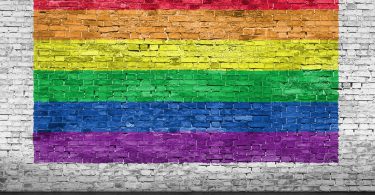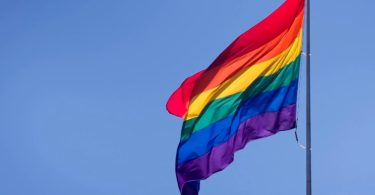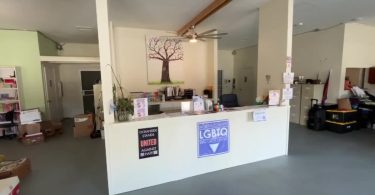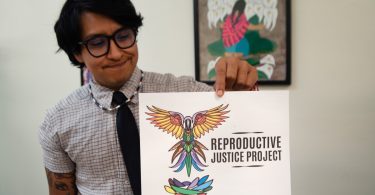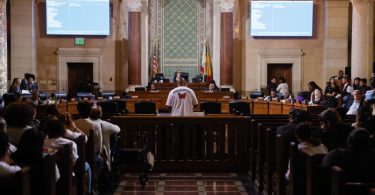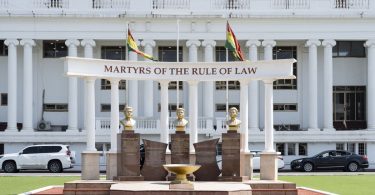Photo: GSN Archives
Scott Johnson was 27 years old when he was murdered. | Photo: GSN Archives
Penny Sharpe moved to Sydney in the late 1980s, at the height of violence against LGBTI people.
The Australian politician described how fearful the LGBTI community felt during that era.
‘It was not uncommon for people to be threatened. It was a scary time,’ Sharpe told Gay Star News.
‘When I moved to Sydney we went to self-defense classes and wore a whistle around our necks. It was the height of anti-gay feeling.’
Strike Force Parabell
Now that Sharpe’s in a position of power, she is using it to call for a parliamentary inquiry into Sydney’s anti-LGBTI violence.
Her calls come on the day state police in New South Wales (NSW) reveal the findings of a three year review into the suspicious deaths of 87 gay men and one trans woman. The deaths happened between 1976 and 2000.
NSW Police setup Strike Force Parabell to review whether any of those deaths happened because of anti-gay bias.
Parabell found that of the cases reviewed 27 were determined to have had evidence or suspected evidence of bias crime. Five of those remain unsolved.
Of the wider 88 cases a total of 23 remain unsolved.
It’s time for a parliamentary inquiry into gay hate (&LBTI) crimes. Proud to stand with @ACONHEALTH @dowsonturcoLAW and @peterrolfe1 as @Luke_FoleyNSW announced @NSWLabor will seek a parliamentary inquiry to stop the violence and work with victims & families for justice. #nswpol pic.twitter.com/wOijanUjGs
— Penny Sharpe (@PennySharpemlc) June 27, 2018
Sharpe along with prominent LGBTI organizations want a further parliamentary inquiry for a number of reasons.
‘What a parliamentary inquiry can do goes beyond the police, I want to find out how do we create a society where it’s not OK to target people because of their gender or sexuality?’ she said.
An inquiry will also help victims’ families. Many families felt the police did not listen to them at the time of their loved ones’ deaths.
‘We think there is an important need to look at gay hate issues over the past few decades, to learn a lesson and to look at issues still outstanding for families.’
Families believed police did not interview the full range of witnesses. Families are also ‘keen to tell their story in relation to the police’.
‘I’m keen for the parliament to hear and commit to making recommendations to make sure those things don’t happen again,’ Sharpe said.
Sharpe will work on the terms of reference for the inquiry over parliament’s winter break. She hopes the inquiry will begin soon after that in the second half of 2018.
Police investigating police
Another reason to call for an independent inquiry into the 88 deaths is to ensure objectivity in the review.
LGBTI health organization, ACON, is also calling for an independent review. During the height of the violence ACON (formerly the AIDS Council of NSW) set up the Anti-Violence Project. It helped raise awareness of the violence epidemic, but it also started recording incidents of anti-LGBTI violence. At one point it was receiving about 20 reports a day of bias related attacks.
ACON also released its own review into the 88 deaths called In Search of Truth and Justice: Documenting Gay and Transgender Prejudice Killings in NSW in the late 20th Century. The report included a longer list of recommendations to end the violence than featured in the Parabell review.
‘Concerns have been raised in the past about whether the police can objectively review themselves and their practices, and an independent process would provide confidence that we have explored the issues and that any recommendations to ensure this cannot happen again are robust and sufficient,’ said ACON CEO Nic Parkhill.
‘Moreover, out of respect to the many victims and their families – not to mention the broader LGBTI community – an independent process would demonstrate that these are issues that our governments and institutions take seriously, which we learn from, and prevent from reoccurring.’
NSW Police apology
ACON is also part of the chorus of people calling for a formal apology from the NSW Police Force to the LGBTI community for the inadequate or slow responses to violence throughout this period.
‘We would welcome an apology from the NSW Police Force to the LGBTI community,’ Parkhill said.
‘This would send a positive sign to any same-sex attracted couple who are still too frightened to hold hands in many places around the state for fear of violence.
‘Importantly, it will go a long way in healing the grief and trauma experienced by victims, families and other members of our communities.’


